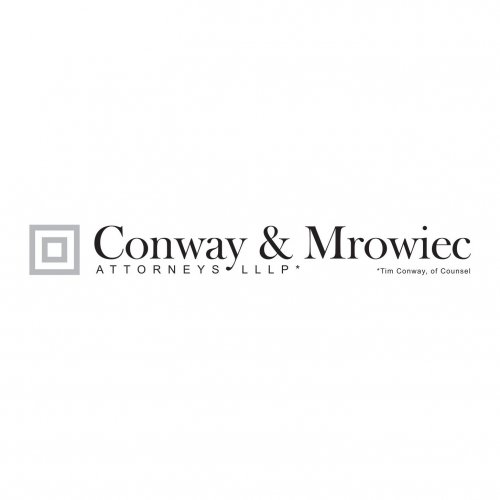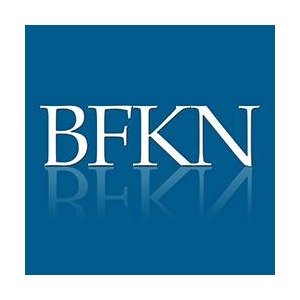Best Government Relations & Lobbying Lawyers in Illinois
Share your needs with us, get contacted by law firms.
Free. Takes 2 min.
Or refine your search by selecting a city:
List of the best lawyers in Illinois, United States
About Government Relations & Lobbying Law in Illinois, United States
Government Relations and Lobbying Law in Illinois governs how individuals and organizations interact with state and local officials to influence legislation, regulations, and public policy. Lobbying is a protected activity under the First Amendment, but it is subject to extensive regulation to ensure transparency, prevent corruption, and maintain public trust. In Illinois, lobbyists must register, file regular reports, and adhere to strict rules regarding gifts, compensation, and communication with public officials. These laws apply to a wide range of advocacy efforts, from large corporations and trade associations to grassroots groups and individual advocates.
Why You May Need a Lawyer
Navigating the complexities of Government Relations and Lobbying in Illinois often requires specialized legal knowledge. You may need legal help if you are:
- Forming or managing a lobbying firm or government relations entity
- Registering as a lobbyist or renewing your registration
- Creating or running a Political Action Committee (PAC) or nonprofit engaged in advocacy
- Advising on compliance with state and local lobbying disclosure requirements
- Facing investigations, audits, or enforcement actions from the Illinois Secretary of State or other regulatory bodies
- Interpreting complex rules on gifts, entertainment, and campaign contributions
- Responding to conflict of interest or ethics inquiries
- Drafting or reviewing contracts with government agencies or public officials
- Seeking to influence procurement, permits, or regulatory decisions
- Dealing with media scrutiny or reputation management linked to lobbying activities
Local Laws Overview
Illinois has some of the nation’s most comprehensive lobbying laws, codified mainly under the Illinois Lobbyist Registration Act (25 ILCS 170). Key legal requirements include:
- Lobbyist Registration: Anyone who communicates with officials or employees of the State of Illinois with the intent to influence official action must register as a lobbyist. This often includes paid advocates as well as some volunteer representatives.
- Disclosure and Reporting: Registered lobbyists must file semi-annual reports detailing lobbying activities, expenditures, and the governmental actions they sought to influence.
- Gift Ban: Lobbyists are prohibited from offering certain gifts, entertainment, or travel to public officials. Any permitted gift or expenditure must be fully disclosed.
- Political Contributions: There are strict rules on campaign contributions by registered lobbyists and their employers to elected officials, especially those with whom they interact.
- Ethics and Conflicts of Interest: Illinois law mandates training for lobbyists on ethics and prohibits certain conflicts of interest.
- Local Government Regulation: Some Illinois cities, including Chicago, have their own additional registration, disclosure, and ethics requirements for lobbyists.
- Penalties: Failure to comply may result in fines, suspension, or criminal penalties, as well as damage to reputation and loss of lobbying privileges.
Frequently Asked Questions
What is considered lobbying in Illinois?
Lobbying includes any communication with a state or local official intended to influence legislation, administrative rules, contracts, permits, or other official actions. This can include phone calls, emails, meetings, testimony, or even arranging endorsements.
Who needs to register as a lobbyist?
Anyone who is compensated or spends significant time engaging in lobbying activities with Illinois public officials or employees must register. Both individuals and entities such as firms, associations, and nonprofits may be required to register.
What are the main requirements for lobbyist registration?
Lobbyists must file a registration statement with the Illinois Secretary of State, pay annual fees, and update their registration if their clients or issues change. Registration must be renewed annually.
Are there restrictions on gifts from lobbyists to public officials?
Yes, Illinois law bans most gifts from lobbyists to officials. Some exceptions exist for certain items of nominal value, but all gifts must be reported. Violations can result in significant penalties.
How often do I need to file lobbying reports?
Illinois lobbyists are required to submit biannual reports detailing their lobbying activities, expenses, and any gifts or political contributions to public officials.
Are there any local laws that apply in addition to state laws?
Yes, several Illinois municipalities, including Chicago and Cook County, have their own lobbying ordinances. These may impose additional registration, reporting, and ethics requirements beyond what the state requires.
What are the penalties for failing to comply with lobbying regulations?
Noncompliance can result in monetary fines, revocation of lobbying privileges, criminal charges for intentional violations, and reputational harm that affects future advocacy efforts.
Can volunteer advocates or nonprofit representatives be considered lobbyists?
Yes, depending on the nature and extent of their activities, unpaid volunteers and representatives of nonprofits may need to register as lobbyists if they regularly attempt to influence government decisions.
What if I am only lobbying at the local or municipal level?
You must still check for applicable local registration and reporting requirements, as some cities and counties in Illinois have their own laws regulating lobbying activities.
How can a lawyer help with government relations and lobbying compliance?
A government relations attorney can provide guidance on registration, reporting, compliance training, defense against enforcement actions, and interactions with public officials. They can also help structure advocacy campaigns to minimize legal risk.
Additional Resources
If you need more information on Government Relations and Lobbying in Illinois, the following resources can be helpful:
- Illinois Secretary of State, Index Department: Administers lobbyist registration and reporting requirements
- Illinois State Board of Elections: Oversees campaign finance and reporting for political contributions
- Executive Ethics Commission of Illinois: Provides ethics training and enforces ethics provisions related to public officials and lobbyists
- Chicago Board of Ethics: Handles local lobbyist registration and enforcement for activities within city government
- American League of Lobbyists or Association of Government Relations Professionals: Offers industry standards and professional guidance
- Local bar associations: Many have government relations practice groups with attorneys who specialize in lobbying law
Next Steps
If you need legal assistance regarding Government Relations or Lobbying in Illinois:
- Gather any documents, correspondence, or materials related to your lobbying or advocacy activities
- Determine whether your activities could require registration or special reporting under Illinois or local laws
- Contact an attorney who specializes in government relations and lobbying compliance
- Prepare questions about registration, reporting, ethics training, or potential risks relevant to your situation
- Review your current compliance procedures to identify areas for improvement or legal review
- If you are subject to an inquiry or enforcement action, seek legal representation immediately to protect your rights and interests
Working with a knowledgeable attorney ensures your advocacy efforts are compliant with all applicable laws and helps you build trust with public officials and stakeholders.
Lawzana helps you find the best lawyers and law firms in Illinois through a curated and pre-screened list of qualified legal professionals. Our platform offers rankings and detailed profiles of attorneys and law firms, allowing you to compare based on practice areas, including Government Relations & Lobbying, experience, and client feedback.
Each profile includes a description of the firm's areas of practice, client reviews, team members and partners, year of establishment, spoken languages, office locations, contact information, social media presence, and any published articles or resources. Most firms on our platform speak English and are experienced in both local and international legal matters.
Get a quote from top-rated law firms in Illinois, United States — quickly, securely, and without unnecessary hassle.
Disclaimer:
The information provided on this page is for general informational purposes only and does not constitute legal advice. While we strive to ensure the accuracy and relevance of the content, legal information may change over time, and interpretations of the law can vary. You should always consult with a qualified legal professional for advice specific to your situation.
We disclaim all liability for actions taken or not taken based on the content of this page. If you believe any information is incorrect or outdated, please contact us, and we will review and update it where appropriate.
Browse government relations & lobbying law firms by city in Illinois
Refine your search by selecting a city.












